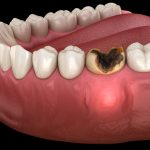Why Do Teeth Fall Out? Common Causes and Prevention Tips
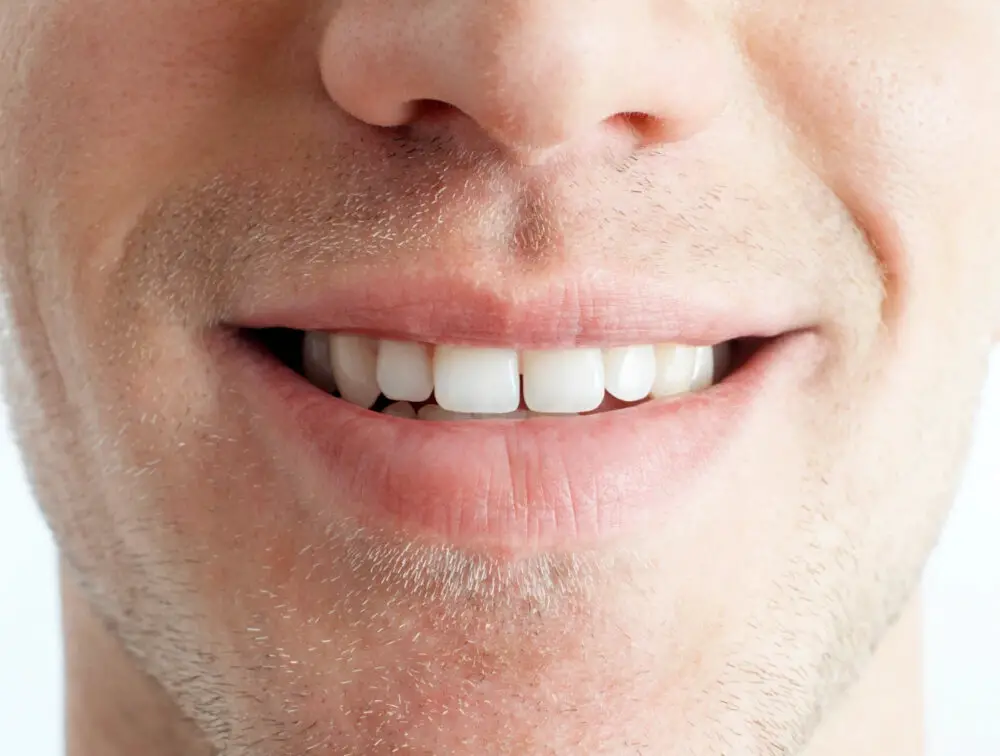
Teeth are an essential part of our body, and they play a crucial role in our overall health and well-being. They help us chew our food, speak clearly, and enhance our facial features. However, as we age, we may start to notice that our teeth are becoming loose, and in some cases, they may even fall out. Losing teeth can be a traumatic experience, and it can impact our confidence, self-esteem and overall quality of life. In this article, we will explore some of the most common causes of teeth falling out and provide tips on how to prevent this from happening. One of the leading causes of teeth falling out is poor oral hygiene. When we fail to brush and floss our teeth regularly, plaque and tartar can build up on our teeth, leading to gum disease or periodontitis. This condition can cause the gums to recede, exposing the roots of the teeth, which can lead to tooth loss. Other causes of teeth falling out include injury or trauma to the mouth, such as a blow to the face, grinding or clenching of teeth, smoking, and certain medical conditions such as diabetes and osteoporosis. However, by taking good care of our teeth and gums, we can prevent them from falling out and keep them healthy for life.
Tooth loss is a prevalent issue among adults, and it can occur due to various reasons such as gum disease, tooth decay, and injury. Gum disease is one of the leading causes of tooth loss and is caused by the accumulation of bacteria and plaque in the gum line. When left untreated, gum disease can cause the gums to recede, leading to tooth loss. Tooth decay is another significant risk factor, which can lead to the formation of cavities and ultimately tooth loss. Injuries caused by accidents or sports-related activities can also cause tooth loss. Proper dental care, including regular brushing, flossing, and dental visits, can significantly reduce the risk of tooth loss.
Maintaining good oral hygiene is vital for preventing tooth loss. Poor oral health can lead to several dental problems, such as gum disease, tooth decay, and infections. Gum disease is a leading cause of tooth loss, and it occurs when bacteria build up in the gum tissue, causing inflammation and weakening the teeth’ supporting structure. Brushing twice a day, flossing daily, and visiting the dentist regularly are essential steps to maintain good oral health. It is also important to maintain a healthy diet, limit sugary and acidic foods, and avoid smoking or tobacco use. By taking care of your teeth and gums, you can prevent tooth loss and maintain a healthy, beautiful smile for life.
Gum Disease

Gum disease, also known as periodontal disease, is a common cause of tooth loss. It is an infection of the gums that affects the tissues and bones that support the teeth. Gum disease is caused by a buildup of plaque, a sticky film of bacteria that forms on the teeth. If left untreated, gum disease can progress to a more serious stage, called periodontitis, which can cause irreversible damage to the gums and bone. In advanced cases, teeth may become loose and fall out or require extraction. Prevention of gum disease involves good oral hygiene practices, such as brushing and flossing regularly, as well as routine dental checkups. Symptoms of gum disease include red, swollen, and bleeding gums, bad breath, and receding gum lines. If you experience any of these symptoms, it is important to see a dentist as soon as possible. Treatment for gum disease may include deep cleaning procedures, antibiotics, and surgery in more advanced cases. In addition to regular dental checkups, maintaining a healthy diet and avoiding tobacco use can also help prevent gum disease. With proper prevention and treatment, gum disease can be managed and tooth loss can be prevented.
Gum disease, also known as periodontal disease, is a common condition that affects the tissues surrounding and supporting the teeth. It is caused by the buildup of plaque and tartar on the teeth, which can lead to inflammation and infection of the gums. Symptoms of gum disease include red, swollen, or bleeding gums, bad breath, and loose teeth. If left untreated, gum disease can progress and damage the bone and connective tissue that hold the teeth in place, eventually leading to tooth loss. Regular dental check-ups and good oral hygiene habits, such as brushing and flossing, can help prevent gum disease and keep your teeth healthy.
Gum disease, also known as periodontal disease, is a bacterial infection that affects the tissues surrounding and supporting the teeth. If left untreated, it can lead to tooth loss. The buildup of plaque and tartar on the teeth can cause inflammation and irritation of the gums, leading to the formation of pockets between the gums and teeth. As the disease progresses, these pockets deepen, causing the gums to pull away from the teeth. This can lead to the destruction of the bone and tissue supporting the teeth, causing them to become loose and eventually fall out. Additionally, gum disease can affect the overall health of the body and increase the risk of other health problems such as heart disease and diabetes. Therefore, it is crucial to maintain good oral hygiene habits and seek professional treatment for gum disease to prevent tooth loss and promote overall health and well-being.
Gum disease is one of the leading causes of tooth loss, but it is also one of the most preventable. The best way to prevent gum disease is by maintaining good oral hygiene habits, such as brushing twice a day with a fluoride toothpaste, flossing daily, and using an antiseptic mouthwash. Additionally, it is important to visit the dentist regularly for cleanings and checkups. A healthy diet that is low in sugar and high in nutrients can also help prevent gum disease. Finally, avoiding tobacco products is essential, as smoking and using chewing tobacco are major risk factors for developing gum disease and losing teeth. By following these prevention tips, you can reduce your risk of gum disease and keep your teeth healthy for life.
Tooth Decay
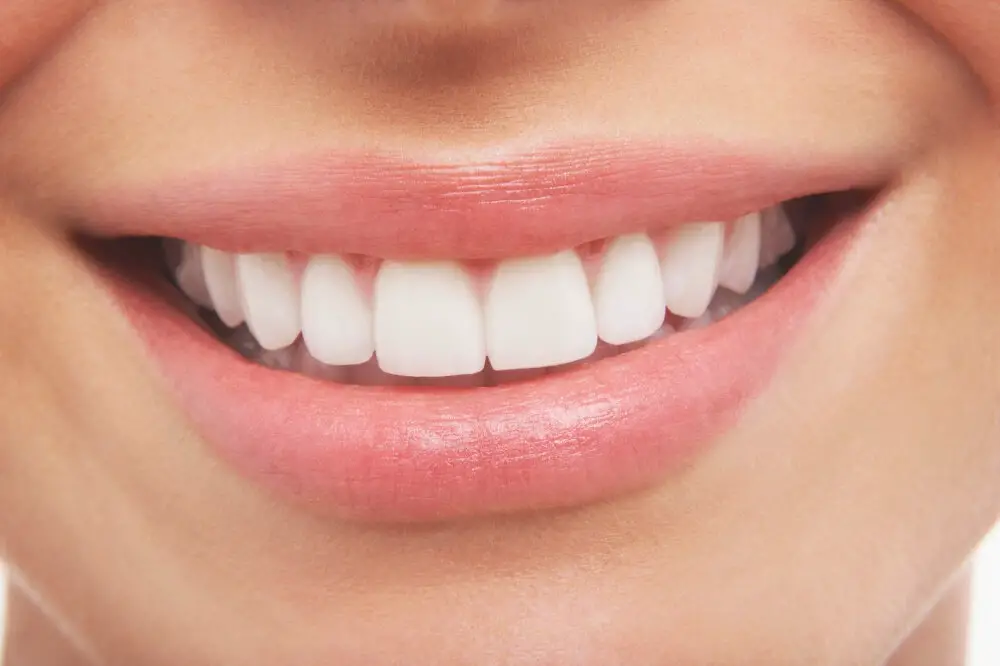
Tooth decay is one of the most common causes of teeth falling out. It occurs when bacteria in the mouth produce acid that erodes the enamel and causes cavities. The enamel is the outermost layer of the tooth, and once it is damaged, the bacteria can penetrate the softer inner layers, leading to infection, inflammation, and ultimately tooth loss. Poor oral hygiene, a diet high in sugar and carbohydrates, and dry mouth are some of the risk factors for tooth decay. Regular brushing, flossing, and dental check-ups can help prevent tooth decay and preserve the health of the teeth. The symptoms of tooth decay may include sensitivity to hot or cold foods, pain when biting or chewing, visible pits or holes in the teeth, and bad breath. If left untreated, tooth decay can progress to more severe stages, such as pulpitis, abscess, and periodontitis, which can cause intense pain, swelling, and even systemic infections. In some cases, the damage may be irreversible, and the tooth may need to be extracted. Therefore, it is essential to practice good oral hygiene habits, avoid sugary and acidic foods, and seek dental care promptly if any signs of tooth decay arise.
Tooth decay, also known as dental caries, is the destruction of the enamel and dentin layers of the tooth caused by bacteria and acids produced by the breakdown of food particles. When the bacteria in the mouth feed on sugars and starches, they produce acid that can dissolve the minerals in the tooth enamel, creating small holes or cavities. If left untreated, these cavities can continue to grow, eventually reaching the inner pulp of the tooth and causing infection, pain, and tooth loss. Poor oral hygiene, a diet high in sugar and carbohydrates, and a lack of fluoride are all factors that increase the risk of tooth decay. Regular brushing, flossing, and dental cleanings can help prevent tooth decay and preserve the health of your teeth.
Tooth decay is a major culprit behind tooth loss. It occurs when harmful bacteria in plaque produce acids that eat away at the enamel, causing cavities to form. If left untreated, the decay can progress deeper into the tooth, eventually reaching the pulp where the nerves and blood vessels are located. At this point, the tooth may become infected and painful. In order to eliminate the infection, a root canal may be necessary. However, if the decay is too extensive or the tooth is severely weakened, it may not be able to be saved. In cases like these, the tooth may need to be extracted to prevent further infection and to protect the surrounding teeth.
To prevent tooth decay, it is essential to maintain good oral hygiene practices such as brushing your teeth at least twice a day with fluoride toothpaste, flossing daily to remove plaque and food particles from between your teeth, and using mouthwash to kill bacteria that cause tooth decay. Additionally, it is recommended to limit your consumption of sugary and acidic foods and drinks, as they can erode your tooth enamel and lead to cavities. Regular dental check-ups and cleanings are also crucial in preventing tooth decay, as your dentist can identify and treat any early signs of decay before they lead to tooth loss. By adopting these prevention tips, you can keep your teeth healthy and prevent them from falling out due to decay.
Trauma
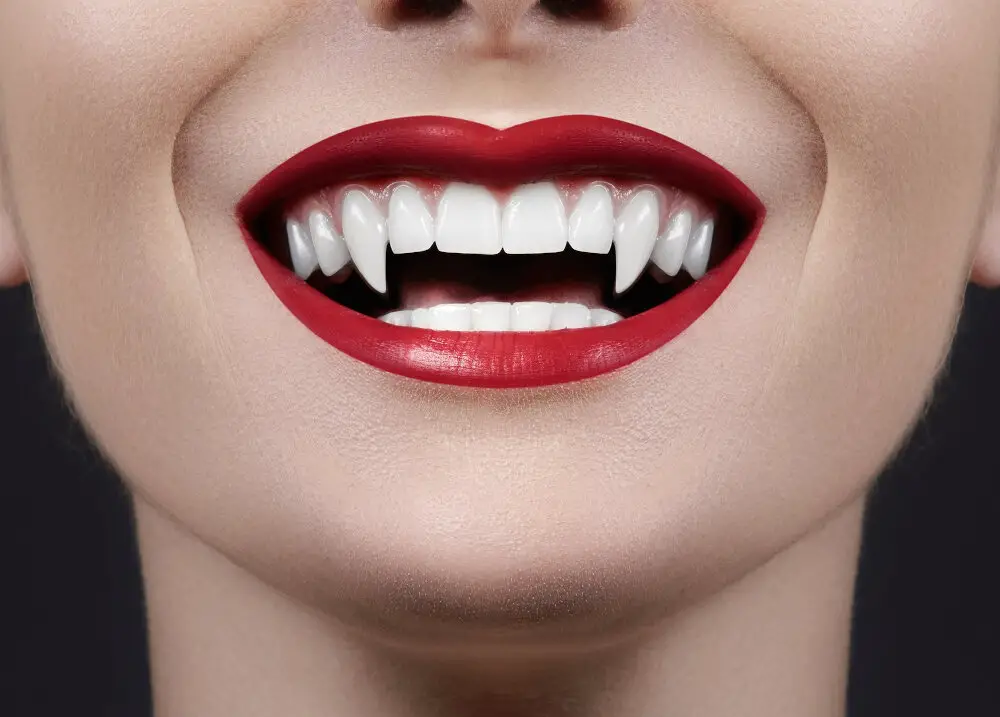
Trauma is one of the common causes of tooth loss. It refers to any injury or damage to the tooth resulting from accidents, falls, or blows to the face. Trauma can lead to the loosening or dislodging of a tooth or cause it to fracture or break. In some cases, the tooth may be pushed back into the socket or knocked out completely, which can result in significant pain and discomfort. Trauma can also cause damage to the soft tissues of the mouth, including the gums and tongue. Severe trauma to the head and neck can be life-threatening and require immediate medical attention. Preventing trauma to the teeth involves taking certain precautions, such as wearing a mouthguard during contact sports, avoiding chewing on hard objects like ice or popcorn kernels, and wearing a seatbelt while driving. Maintaining good oral hygiene can also help prevent trauma by keeping the teeth strong and healthy. If trauma does occur, it is important to seek immediate dental care to prevent further damage or infection. In some cases, a damaged tooth may be able to be saved with prompt treatment, while a knocked-out tooth may be able to be re-implanted if handled correctly. Overall, being aware of the risks of trauma to the teeth and taking preventative measures can help preserve your oral health and prevent tooth loss.
Trauma refers to physical injury, shock or damage caused by a sudden impact or force. In terms of dental health, trauma can occur due to various reasons such as accidents, falls, sports injuries, and even dental procedures. Trauma to the teeth can cause a range of problems, from chips and cracks to complete tooth loss. The severity of the trauma depends on the extent of the injury and the location of the tooth affected. It’s important to seek immediate dental attention if you experience trauma to your teeth to prevent further damage and ensure the best possible outcome for your oral health.
Trauma to the mouth or face can result in tooth loss. This can happen due to accidents, falls, sports injuries, or physical altercations. When a significant force is applied to the teeth, the roots can fracture or become dislodged from the jawbone, leading to tooth loss. Additionally, trauma can cause damage to the gums and surrounding tissues, which can weaken the support structures of the teeth. While some traumatic tooth loss can be prevented by wearing protective gear during sports or being cautious during physical activities, accidents can happen unexpectedly. If tooth loss due to trauma does occur, it is important to seek immediate dental attention to prevent further complications.
Trauma to teeth can be a painful experience that can lead to tooth loss, which is why prevention is key. One of the most important prevention tips is to always wear a mouthguard during high-risk activities such as contact sports or any activity that may involve impact to the face. Additionally, avoiding chewing on hard foods or using teeth as tools can help prevent trauma. Regular dental check-ups can also help catch any issues early on, preventing further damage. Proper oral hygiene, such as brushing and flossing regularly, can also help keep teeth healthy and strong, making them less susceptible to trauma. By following these prevention tips, you can help ensure that your teeth remain healthy and strong for years to come.
Medical Conditions

Medical conditions can be a leading cause of tooth loss. Health issues like diabetes, heart disease, and cancer can affect the overall health of the gums and teeth. For instance, diabetes can cause high blood sugar levels, which can lead to damage to the blood vessels in the gums. This damage can weaken the gums and make them more susceptible to gum disease, which can lead to tooth loss. Similarly, individuals with heart disease may be at risk of developing gum disease due to the inflammation in the body caused by the condition. Moreover, cancer treatments like chemotherapy and radiation can cause damage to the oral tissues, leading to infection and tooth loss. To prevent tooth loss caused by medical conditions, it is crucial to maintain good oral hygiene practices and manage underlying health conditions. Regular brushing and flossing can help remove plaque and prevent gum disease. Additionally, individuals with medical conditions should work closely with their healthcare providers to manage their condition and keep their blood sugar levels under control. Maintaining a healthy diet and avoiding tobacco use can also help prevent tooth loss caused by medical conditions. Furthermore, individuals undergoing cancer treatments should consult with their oncologist and dentist to develop a plan to protect their oral health during treatment.
Tooth loss can occur due to various medical conditions that affect the health of teeth and gums. One of the most common conditions is periodontitis, a severe gum infection that damages the soft tissue and bones that support the teeth. Another medical condition that can cause tooth loss is tooth decay, which is the result of poor oral hygiene, a high-sugar diet, and bacteria in the mouth. Additionally, osteoporosis, a condition that causes bones to weaken and become brittle, can also lead to tooth loss. Other factors that can contribute to tooth loss include smoking, alcohol consumption, and certain medications that affect the health of teeth and gums. It is important to maintain good oral hygiene and seek prompt treatment for any dental issues to prevent tooth loss.
Several medical conditions can lead to tooth loss. One of the most common is periodontitis, a severe form of gum disease that can cause inflammation and infection in the gums. If left untreated, periodontitis can damage the bone that supports the teeth, causing them to loosen and eventually fall out. Diabetes is another medical condition that can lead to tooth loss. High blood sugar levels can weaken the bones and tissues that support the teeth, making them more susceptible to decay and gum disease. Additionally, osteoporosis, a bone disease that causes bones to become weak and brittle, can also lead to tooth loss. As the jawbone weakens, teeth may become loose and fall out over time.
Preventing medical conditions that can cause tooth loss is crucial in maintaining good oral health. One of the most effective ways to prevent tooth loss is by practicing good oral hygiene. Brushing twice a day, flossing daily, and using mouthwash can help remove plaque and bacteria from the teeth and gums, reducing the risk of gum disease and tooth decay. It is also important to maintain a healthy diet, avoiding sugary and acidic foods and drinks that can erode tooth enamel. Regular dental check-ups and cleanings are essential for detecting and treating any oral health issues early on. Quitting smoking and limiting alcohol consumption can also reduce the risk of developing oral cancer and other medical conditions that can cause tooth loss. By adopting these preventative measures, individuals can protect their teeth and maintain a healthy and beautiful smile.
Tooth loss is a common dental issue that can affect anyone, regardless of their age or gender. There are several reasons why teeth may fall out, including poor oral hygiene practices, gum disease, trauma or injury to the mouth, smoking, and genetic factors. Poor oral hygiene practices, including infrequent brushing and flossing, can lead to the buildup of plaque and tartar on the teeth, which can cause decay and eventually tooth loss. Gum disease is another common cause of tooth loss, as it can cause the gums to recede and expose the roots of the teeth. Trauma or injury to the mouth, such as a sports injury or car accident, can also result in tooth loss. Additionally, smoking can have a detrimental effect on oral health, as it can lead to gum disease and other dental issues. Finally, genetic factors can also play a role in tooth loss, as some people may be more prone to certain dental conditions than others. To prevent tooth loss, it is important to practice good oral hygiene habits, visit the dentist regularly for checkups and cleanings, and avoid smoking and other harmful habits.
Proper oral hygiene and regular dental checkups are crucial for maintaining healthy teeth and gums. Neglecting oral hygiene can lead to a buildup of plaque and tartar, which can cause tooth decay and gum disease. These conditions can eventually lead to the loss of teeth. Regular dental checkups allow for early detection and treatment of any potential issues before they become more serious. Additionally, a dentist can provide guidance on proper brushing and flossing techniques, as well as recommend appropriate dental products. By prioritizing oral hygiene and regular dental checkups, individuals can ensure the longevity of their teeth and overall oral health.
In conclusion, tooth loss is a common problem that affects people of all ages. However, with proper oral hygiene practices, regular dental checkups, and a healthy diet, it is possible to prevent this problem. Brushing your teeth twice a day with fluoride toothpaste, flossing daily, and using mouthwash can help remove plaque and prevent gum disease. Additionally, avoiding tobacco, limiting sugary and acidic foods and beverages, and drinking plenty of water can also help maintain good oral health. It is important to visit a dentist regularly to check for any signs of tooth decay or gum disease and to receive professional cleanings. By taking these preventative measures, you can improve your chances of keeping your natural teeth for a lifetime.
Conclusion
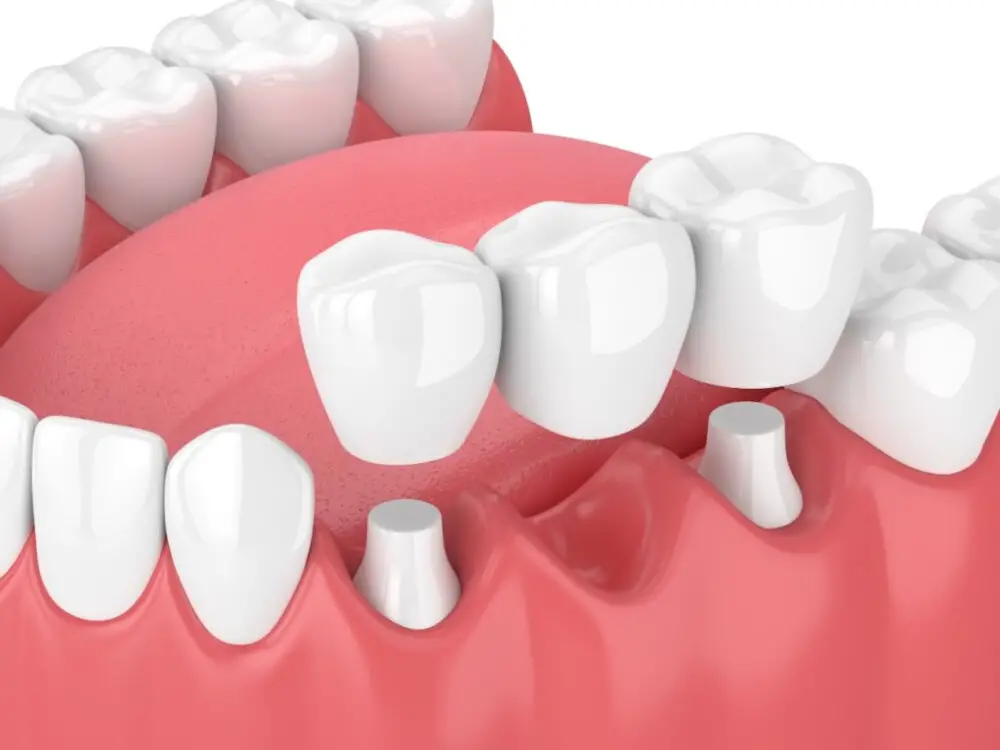
In conclusion, teeth falling out is a common occurrence that can be caused by a myriad of factors, including poor oral hygiene, gum disease, tooth decay, and injury. However, by adopting healthy dental habits such as brushing and flossing regularly, visiting the dentist for routine checkups, and avoiding harmful habits like smoking, we can prevent the loss of our precious teeth. It is essential to prioritize our dental health to ensure that we maintain a beautiful, healthy smile that lasts a lifetime. Remember, prevention is always better than cure when it comes to our teeth!
